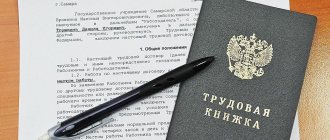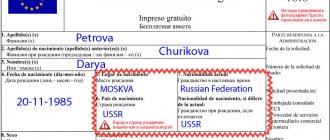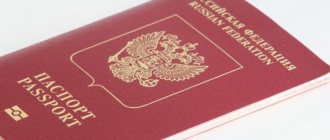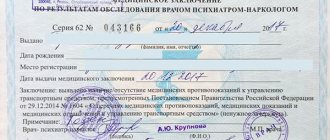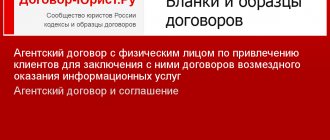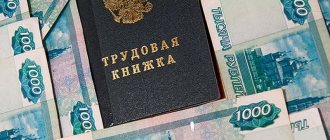Rights of foreigners
The legal status of foreign citizens in the Russian Federation and their rights are enshrined in the Federal Law of July 25, 2002 “On the legal status of foreign citizens in the Russian Federation.” Certain rights are also enshrined in international treaties concluded with various countries.
Foreign citizens, in general, have the same rights as Russians, but there are restrictions:
- Work in government agencies and municipal organizations is closed to them.
- They do not participate in elections and referendums.
- They do not serve as part of the forces of the Russian Federation. Foreigners can be hired into the army under contract, but do not have the right to occupy leadership positions.
Foreign citizens have the right to receive one of the following statuses:
- Temporary arrivals with a visa or through a visa-free regime.
- Temporary residents. If you have a document permitting temporary stay in Russia.
- Permanent residents. They can receive free medical care, benefits, allowances and pensions on the same basis as Russian citizens.
- Diplomatic personnel. Embassy and consulate employees enjoying diplomatic immunity.
- Persons who have requested refugee status, as well as those who have received it.
Fundamental rights of foreigners that are reliably respected:
- The right to freedom and personal security.
- The right to privacy, personal and family secrets, protection of one’s honor and good name.
- For the inviolability of the home.
- For education.
- To freedom of conscience and religion.
- Own property and freely possess, use and dispose of it.
- For health protection.
Rules for the entry of foreigners into the territory of the Russian Federation
- Entry is possible for those who have received a visa.
- Entry is possible for citizens with whose state an agreement on a visa-free regime has been concluded.
- From Belarus, Ukraine, Kazakhstan and Kyrgyzstan, entry into Russia is carried out using internal passports.
- Since January 2015, a simplified procedure for registering Ukrainian citizens entering the territory of the Russian Federation has been in effect.
- Upon entering the country, a migrant card is filled out, which indicates the purpose of the visit and the expected date of departure.
- After arriving on the territory of the Russian Federation, foreigners must register at their place of stay. Most are required to do this within 7 days; citizens of Tajikistan can do this within 15 days. Residents of Kazakhstan – up to 30 days. For Belarusians there are even stronger relaxations, since there is practically no border between Russia and Belarus from the point of view of legal procedures. They do not have to fill out a migration card and have greater privileges than residents of other countries.
If a foreign citizen has the status of a temporary resident on the territory of Russia, then his presence, as a rule, is limited to 3 months, excluding the following situations:
- His visa has been extended or a new visa has been received.
- Employment patent received.
- The foreigner has applied for a residence permit.
- A foreigner entered an educational institution.
The three-month period of stay in Russia is reduced in the following cases:
- If there was forgery or falsification of documents with the help of which entry into the country was made.
- During the past three years, the foreigner received administrative fines or otherwise came to the attention of law enforcement authorities more than twice.
- The previous time I left the country, my visa was expired without good reason.
- A foreigner is deported for committing espionage.
- The foreigner is extradited to the territory of the country where he committed the crime.
- A voluntary health insurance policy was not issued.
- When crossing the border, the foreigner was unable to confirm that he had a sufficient amount of funds to live in Russia.
- Foreigners are prohibited from entering Russia.
- On the previous visit, the foreigner did not pay the required fees or compensate the costs of his deportation from the country.
Foreign citizens who have received permission to temporarily reside in the country can remain in this status for up to three years. Upon receipt of this status, no supporting document is issued. You just put a stamp in your passport. The exception is stateless persons, for whom a separate document is issued indicating all personal data. A request to obtain stateless person status can be made at the Main Migration Department of the Ministry of Internal Affairs, consulates and diplomatic missions.
When considering the issue of assigning status, employees of the Main Directorate for Migration Affairs of the Ministry of Internal Affairs send requests to various government agencies to collect data about the foreigner. Based on the institutions’ responses, the status is assigned or a refusal is issued. The process of reviewing documents can take up to six months.
In case of refusal, the request for assignment of status can be repeated no earlier than after 1 year.
If the status is obtained, then the foreign citizen is obliged to report to the Main Directorate for Migration Affairs of the Ministry of Internal Affairs about his income. Temporary residence permits are issued on the basis of quotas. The quota system itself implies the number of foreigners who can annually obtain the right to temporarily reside in the Russian Federation.
Outside the quota system, this status is given to:
- People born in the RSFSR and who had a USSR passport.
- Those who have incapacitated direct relatives or children in Russia.
- Those who have entered into a marriage contract with a Russian citizen.
- Those who signed a contract to serve in the Russian armed forces.
- Persons participating in government resettlement programs.
Table 1. Temporary residence quotas (2017–2021)
| Federal District | Number of quotas by year | ||
| 2017 | 2020 | 2021 | |
| Central | 38500 | 33400 | 28150 |
| Northwest | 10000 | 9300 | 6610 |
| Southern Federal | 10000 | 11500 | 10400 |
| North Caucasus | 7200 | 6400 | 7050 |
| Privolzhsky | 19500 | 19000 | 15000 |
| Ural Federal | 8350 | 7500 | 4950 |
| Siberian Federal | 21000 | 17000 | 13270 |
| Far Eastern | 8800 | 6400 | 4930 |
Document requirements
An application for citizenship can only be submitted by the applicant personally, although the document can be completed with the help of a representative. When submitting documents, information about the applicant’s identity will be checked (using a passport of another state, a residence permit, and other documents). The application shall indicate the following information:
- information about the applicant for citizenship and his family members;
- grounds for acquiring citizen status;
- reference to current citizenship of another country (it can be revoked after submitting an application);
- information about the document according to which the applicant resides in the Russian Federation on a legal basis;
- confirmation that the applicant complied with the legislation of the Russian Federation throughout the entire period of residence in the Russian Federation, and also guarantees its compliance after the issuance of a Russian passport;
- personal signature and date of application.
The list of other documents that will have to be submitted to the migration department of the Ministry of Internal Affairs depends on the grounds for the application. It is mandatory to submit passports for all family members, birth certificates, marriage or divorce certificates.
It is mandatory to submit 4 photographs for each applicant. The list of other documents may include:
- diplomas, certificates and other documents for a highly qualified specialist;
- passports of citizens of the former USSR, or archival documents;
- a permit form giving the legal right to reside in Russia;
- documents on the legality of the work activity of a foreigner living in Russia (for example, a business patent);
- certificates of registration with the tax authorities;
- certificates of personal income or place of work at domestic enterprises;
- secondary education certificates;
- documents on ownership of financial and property assets, shares and shares in the authorized capital of domestic enterprises;
- certificate or certificate of WWII veteran status;
- other forms and forms.
A document confirming a sufficient level of knowledge of the Russian language will be a certificate based on the results of exams, a certificate of training completed in schools or universities in Russia or the USSR. There is no need to pass exams for subjects who studied in the USSR before 1991, or in educational institutions of countries where Russian is the state language. It is also allowed to do without testing for disabled and incompetent persons (for example, disabled people or minor children). Medical certificates are not required to obtain citizenship.
What rights does temporary status give?
Upon receipt of temporary residence status, a foreigner has the rights to:
- Free medical care.
- Legal stay in the country for 3 years.
- Registration of companies and organizations.
- The ability to freely leave Russia and return back.
A request for a residence permit (RP) can be submitted if the foreigner has legally lived in the country for more than 1 year. Having collected the necessary documents and sent them to the Main Department of Migration Affairs of the Ministry of Internal Affairs (at least 6 months must remain before the end of the temporary status), the foreigner must wait about six months for this issue to be resolved.
The following may qualify for faster processing of a residence permit application:
- Persons whose native language is Russian, or persons participating in the state resettlement program.
- Belarusian citizens, specialists in a certain field (3 months).
- People with refugee status (15 days).
In case of successful registration of a residence permit (valid for up to 5 years with the right of extension), foreigners have the right to:
- Free to leave and return to the country. Moreover, they are required to spend at least 180 days a year in Russia annually.
- Receive all the rights and benefits the same as citizens of Russia, with the exception of the right to vote.
- Find a job and work without any additional permits.
Features for citizens of foreign countries
By law, obtaining a passport in Russia does not require renunciation of citizenship of another country. But such a requirement is put forward by a number of countries, including Germany, the Czech Republic, Spain, Italy, India, Israel and others. Tolerant of other nationalities - USA, Turkey, Greece, Canada.
USA
Any US citizen who meets the necessary requirements described above can apply for Russian citizenship both on a general basis and in a simplified manner, if there are grounds for doing so.
At the same time, Americans do not need to completely renounce their US passport, which will not be valid only on the territory of the Russian Federation .
Thus, when traveling abroad, an American can use his American documents.
Germany
There are no special exceptions for German citizens. Germans can count on Russian citizenship under the same conditions as other immigrants. Germany does not recognize dual citizenship, therefore, when receiving a Russian passport, a German citizen is deprived of a German one .
But not so long ago, the German side made some exceptions regarding children. A Russian child born in Germany under 23 years of age has dual citizenship. Upon reaching this age, he must make a choice whether to become a citizen of Germany or Russia.
Czech
The situation for the Czechs on this issue is no different from the Germans. A citizen of the Czech Republic will need to make a choice in favor of only one country.
Having gone through all the stages of obtaining the necessary documents and achieving the goal, the Czech citizen loses this status. At least legally, the Czech passport becomes invalid.
Spain
Spanish legislation provides for the possibility of dual citizenship only for citizens of Latin America, the Philippine Islands, Portugal, Equatorial Guinea and Andorra.
There is no international treaty with the Russian Federation, so a Spanish citizen loses his former citizenship by receiving a Russian passport .
Italy and India
If an Italian citizen wants to become a Russian citizen, then he also needs to go through the procedure of obtaining citizenship under general conditions after living for 5 years in the Russian Federation.
Upon receipt of the status of a citizen of the Russian Federation, Italian citizenship will need to be renounced. The process can be accelerated by being married to a Russian or, if such are parents living in this country.
The standard passport procedure applies to Indian citizens as well. There are no distinctive features that could be used to speed up the process. As already noted, upon receipt of Russian citizenship, Indian citizenship is automatically revoked .
Israel
Unfortunately, there is also no international agreement between Israel and Russia. This means that dual citizenship between countries is not possible .
But in reality, an Israeli citizen can retain citizenship, since in practice in the Russian Federation it is not always necessary to provide documents confirming renunciation.
You can find a lot of useful and important information on the pages of our website. We will tell you about the rules for obtaining Russian citizenship by foreigners. We invite you to find out what are the features of this procedure for residents of the following countries:
- Ukraine;
- Tajikistan;
- Uzbekistan;
- Georgia;
- Armenia;
- Azerbaijan.
Certain categories of foreign citizens
- Highly qualified specialists have special benefits when applying for a residence permit. This status is assigned subject to earnings of 2 million rubles per year. For teachers, lecturers and scientists, annual earnings must be at least 1 million rubles.
- Citizens with diplomatic immunity who are employees of foreign consulates and embassies are not subject to certain laws, in particular: Taxes. Consulate work is not subject to taxes or fees.
- Diplomatic property, housing and transport are inviolable.
- Diplomatic baggage is exempt from duties and customs control.
Labor rights of foreign citizens and stateless persons
- The right to work and enter into contracts. In this case, the employer must obtain permission for this. The exception is the case of employment of persons with a residence permit, temporary resident status, highly qualified specialists, participants in government resettlement programs, refugees and diplomats.
- In some regions of Russia, under a quota system, hiring foreign employees is prohibited.
- Since 2021, foreign citizens do not have the legal right to get a job in the medical field (to work as nurses and doctors).
Requirements for employment of foreign citizens:
- Age from 18 years.
- Passed the exam for a fairly good command of the Russian language.
- A document permitting work activity should not have a longer validity period than a document permitting one to stay on the territory of the Russian Federation.
- Employment is possible only in the subject of the federation where the permit was issued.
- The employer must regularly notify the Main Directorate for Migration Affairs of the Ministry of Internal Affairs about the employment and dismissal of foreigners. Otherwise, he risks being subject to a fine of up to 1 million rubles.
The following are taken into account when issuing an employment quota:
- Availability of permission to enter Russia.
- The relevance of the labor specialty.
- Presence of relatives in the Russian Federation.
- Knowledge of Russian language.
- Availability of real estate in Russia.
Table 2. Job quotas for foreigners (2017-2021)
| Federal District | Number by year | ||
| 2017 | 2020 | 2021 | |
| Central | 38500 | 26682 | 21753 |
| Northwest | 10020 | 13406 | 6975 |
| Southern Federal | 10450 | 4496 | 1393 |
| North Caucasus | 7250 | 2363 | 2180 |
| Privolzhsky | 19500 | 10548 | 5186 |
| Ural Federal | 8350 | 21772 | 19718 |
| Siberian Federal | 21050 | 20740 | 14681 |
| Far Eastern | 8880 | 38180 | 36132 |
Table 3. Amount of quota for jobs for foreigners (2017-2021)
| Kind of activity | Percentage of total | ||
| 2017 | 2020 | 2021 | |
| Vegetable growing | 15 | 50 | 50 |
| Retail trade (alcohol, beer) | 0 | 0 | 15 |
| Retail trade (tobacco products) | 0 | 0 | 15 |
| Retail trade (medicines) | 0 | 0 | 0 |
| Trading in the markets | 40 | 30 | 0 |
| Trading outside markets, shops or stalls | 15 | 15 | 0 |
| Land passenger transport | 15 | 15 | 28 |
| Freight transport | 35 | 30 | 28 |
| Sports activities and more | 25 | 25 | 25 |
conclusions
Being deported from the Russian Federation does not always mean only forced eviction; in addition, this may also mean receiving a ban on subsequent entry into the country, and sometimes a fine.
Many foreigners are misled by the fact that they have close relatives on Russian territory, especially if they are Russian citizens. The law states that neither the wife, nor the children, nor other relatives can provide the violator with “migration immunity”. The only way they can help in this situation is to act as a mitigating circumstance when appealing the deportation in court.
Rights of foreign citizens to study in higher educational institutions
- Citizens of other countries and stateless persons have the right to study.
- Admission to an educational institution is carried out on the basis of international treaties in force between Russia and other countries.
- Admission to educational institutions is carried out according to a quota system and should not exceed 7,000 people annually throughout Russia.
- Admission is carried out in accordance with the rules of the university where the foreigner is admitted.
- Persons who are citizens of CIS countries have the right to apply for budget-funded places in Russian universities.
- A foreigner must confirm knowledge of the Russian language at a sufficient level when applying to universities.
- Foreign educational documents must undergo a nostrification (confirmation) procedure on the territory of the Russian Federation. Nostrification can be academic (allows you to continue your education at Russian universities) and professional (allows you to work on the territory of Russia in your specialty).
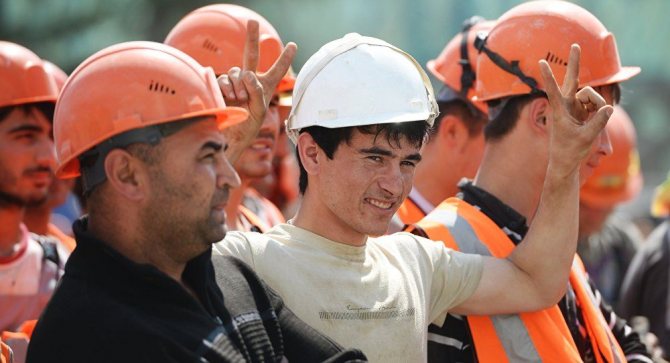
How does this happen for EU countries?
As mentioned above, any foreigner can become a citizen of the Russian Federation. The general procedure for obtaining the necessary documents was also discussed in the article. But it makes sense to consider the downside of obtaining a Russian ID for immigrants.
In what cases does dual citizenship occur, implying officially recognized citizenship of several countries with which agreements have been concluded? And in what cases, having become the owner of a Russian passport, is there a problem of losing one’s first citizenship? And also, is it possible for an EU citizen to obtain Russian citizenship?
Reference! At the moment, no agreement on dual citizenship has been concluded with any foreign country or the European Union. Former residents, receiving a Russian passport, lose their rights to their previous citizenship.
